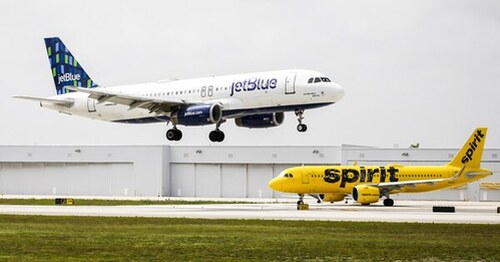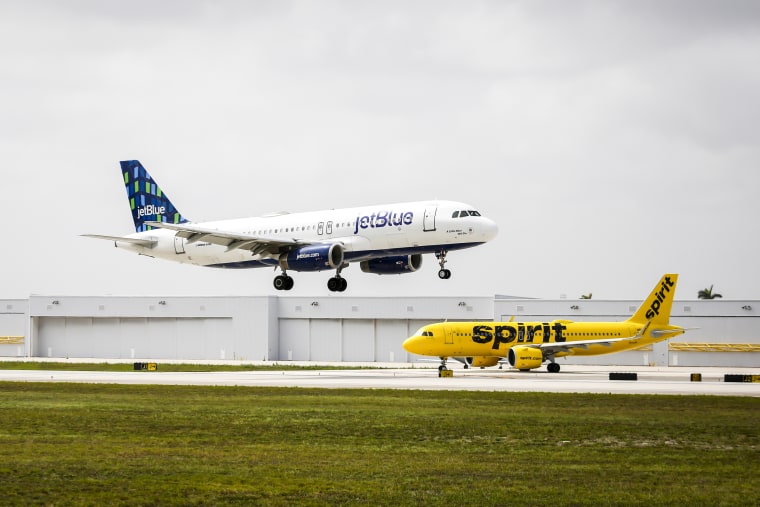
JetBlue's merger with Spirit will knock out one of America's largest low-cost carriers, analysts warn
JetBlue and Spirit Airlines announced Thursday they have reached an agreement on a merger that would create the fifth largest airline in the U.S.
The companies characterized the $3.8 billion merger as creating "a national low-fare challenger" to other major airlines.
"Spirit and JetBlue will continue to advance our shared goal of disrupting the industry to bring down fares from the Big Four airlines," JetBlue CEO Robin Hayes said in a statement.
But knocking out Spirit, America's largest ultra-low-cost carrier, risks eliminating a key option for the country's most budget-conscious travelers.
"Spirit has empowered so many people to fly who might not have been able to afford to before," said Scott Mayerowitz, executive editor of ThePointsGuy.com, a travel website.
While Spirit may not offer the same perks as more expensive carriers, like free snacks or in-flight entertainment, he said, "flying cross-country for $99 is miraculous."
"There are a lot of people out there who are very happy with that, and I think that’s what we risk losing, is that super-low-cost option," Mayerowitz said.
Flight booking sites show the cheapest route from the New York area to Orlando — one of the busiest routes in the country — currently costs as little as $126 when booking a round-trip ticket using Spirit as the first leg and Frontier, another low-cost airline, as the second.

Henry Harteveldt, president of the travel consultancy Atmosphere Research, agreed that losing Spirit would upend the travel market, especially for lower-income flyers.
But he said the U.S. Department of Justice, which has authority to review mergers and can take legal action to block them, would likely extract concessions from JetBlue to ensure the airline would continue offering low-cost options to traditional Spirit travelers after the merger.
Harteveldt added that while the lowest-income Americans could be hurt by JetBlue's purchase of Spirit, the presence of a larger airline serving budget-conscious travelers could keep pressure on the giants of the airline industry — American, Southwest, Delta and United — to continue to lower their fares.
"What makes me feel better about this merger is that JetBlue already has a strong value proposition," Harteveldt said.






